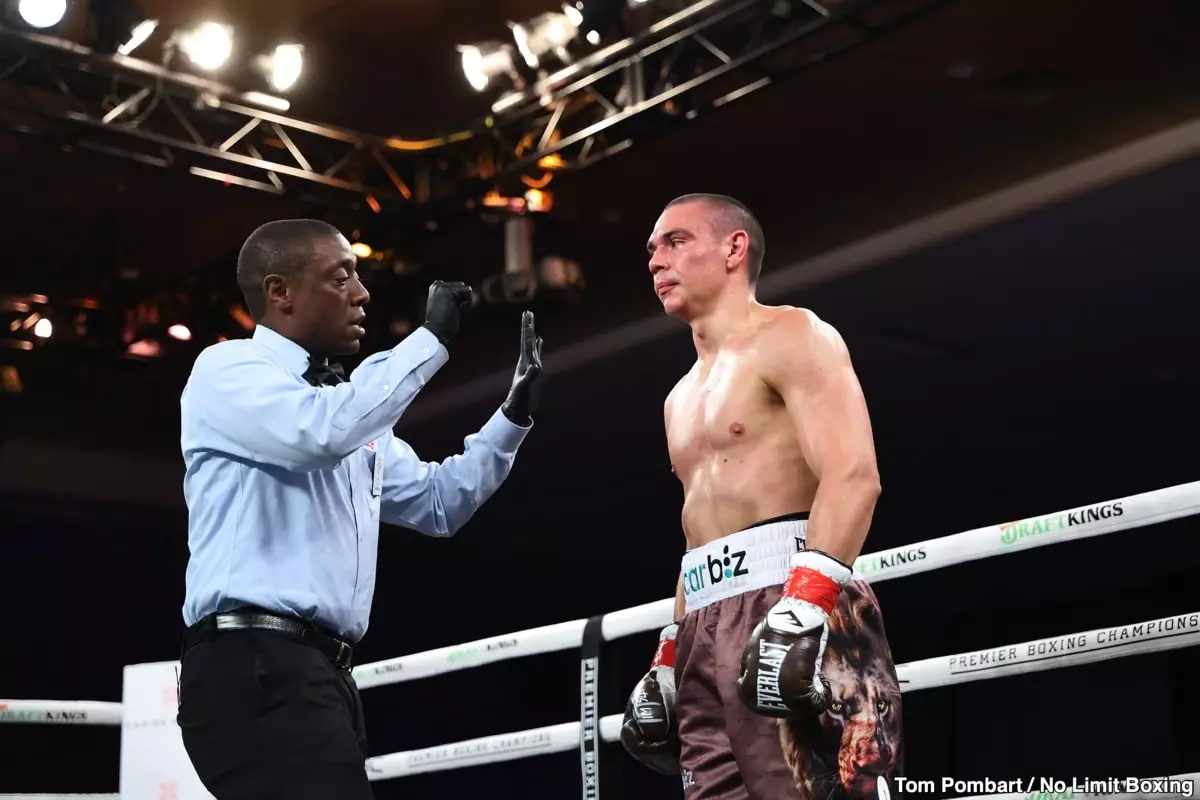In the world of professional boxing, the quick pivot of public sentiment regarding fighters post-defeat reflects a troubling trend. Following his recent loss to IBF junior middleweight champion Bakhram Murtazaliev, Tim Tszyu’s standing among fans has taken a significant hit, prompting questions about his future and eliciting comments from former fighter Chris Algieri about the broader implications of such reactions. The quick dismissal of Tszyu—who now bears a 24-2 record—manifests a pervasive attitude in boxing where fighters are often labeled as “washed up” following even a couple of setbacks. This public perception can have detrimental consequences for both fighters and the sport as a whole.
Algieri’s insights suggest that once a fighter suffers losses, they become less appealing to promoters and fans alike. With the overwhelming desire for remaining undefeated dominating the sport, many boxers opt to face less challenging opponents to pad their win-loss records rather than take risks that might deepen their reputations. This cautious behavior from fighters not only fosters an uninspiring viewing experience riddled with mismatches; it also hampers the potential evolution and excitement of the sport. In an age where the authenticity and narrative of a fight are paramount, boxing fans crave competition, not mere victories.
Tim Tszyu’s decision to fight Murtazaliev was a calculated risk. Facing a formidable opponent, he showcased a willingness to engage in competitive bouts rather than opting for “easy” wins against lesser fighters. Algieri voiced a sentiment he believes should resonate with all boxing aficionados: “Fighters are unwilling to take these risks.” The current culture pressures athletes to maintain an “O” in their records—an aspect that discourages them from fighting against the best, even if it means possible setbacks.
Enthusiasts of the sport should recognize that Tszyu’s situation exemplifies the dilemma faced by boxers today. The brave choice to enter the ring against someone like Murtazaliev should be lauded, not vilified. Tszyu, through his actions, is setting a precedent for taking on the best rather than shying away from competition. However, failure to come out victorious places him in a precarious position, where he must now work harder to regain fan trust and marketability.
What is particularly disheartening is how quickly fans cast aside fighters once they falter. Algieri laments this societal tendency, asserting that the culture of devaluation occurs even when fights are overshadowed by circumstances like injuries or misfortunes. Tszyu’s loss, which his supporters may argue was influenced by an unfortunate elbow cut during his previous fight, speaks volumes about how flimsy a fighter’s reputation can become.
Algieri emphasizes that, despite Tszyu’s disappointing outcome against Murtazaliev, the boxer’s bravery and tenacity should not be dismissed. Instead, there lies the opportunity for Tszyu to reclaim his title among the elite of the 154-pound division by demonstrating resilience. Yet, the prevailing attitude is discouraging. As Algieri so poignantly stated, “The fan base just throws them away”, which emphasizes a harsh reality: the fickleness of boxing fans.
The misalignment between fans’ expectations and the realities of boxing contributed to Tszyu’s downfall in public perception. In numerous divisions, records appear inflated due to fighters consistently facing weaker opponents, further fueling dissatisfaction among the viewing audience. Tszyu’s experience stands in stark contrast to many top boxers who avoid risk, leading to an industry filled with mismatches—essentially, a sterile version of the sport devoid of excitement or intrigue.
Disengagement from this predictable cycle is essential for breathing life back into boxing. To elevate the sport, both fighters and promoters must embrace risk, not just for the sake of an “O”, but for the genuine excitement that competition brings. Rigorous matchups can yield unexpected storylines and engender a more profound appreciation for the challenges boxers face on their journey to greatness.
In the end, Tim Tszyu’s recent defeat should serve as a rallying cry for fans and fighters alike to reevaluate their expectations and conduct. Boxing thrives on stories of resilience and determination—qualities that can inspire and mobilize the fan base. Emphasizing courage over perfection can create a more diverse and compelling landscape for the sport. Tszyu might have stumbled, but his willingness to take risks has created the opportunity for renewed support and the eventual reclamation of his place within the boxing pantheon. In a sport often marred by aversion to risk, perhaps it’s time for fans to cheer not just for the undefeated but for the fighters who dare to challenge themselves in pursuit of excellence.

